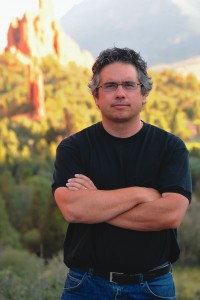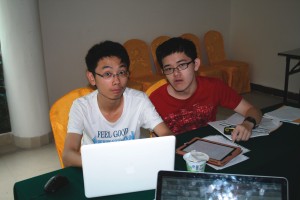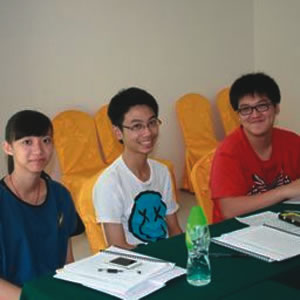 Why is higher education in emerging economies moving in the direction of the liberal arts even as this approach is being questioned in the U.S.? What role can CC play as a premier liberal arts institution in this realm?
Why is higher education in emerging economies moving in the direction of the liberal arts even as this approach is being questioned in the U.S.? What role can CC play as a premier liberal arts institution in this realm?
Associate Dean of Global, Community, and Summer Programs Eric Popkin oversaw the first Colorado College in China summer program, sending Associate English Professor Steven Hayward to Guangzhou, China, to teach an intensive three-week writing course to high school students from the Affiliated High School of South China Normal University.
“For the most part the Chinese approach to English is geared toward acing the SAT, and those are important skills to have,” said Hayward. “But the goals of our program went beyond that in important ways, in that we stressed the need to not just be proficient in the language, but also to grasp its expressive possibilities, how to inhabit it in holistic, creative ways.”
In addition to class every morning, students met individually with Hayward in the afternoons for one-on-one sessions in which they received specific recommendations about how to improve their writing.
“When it comes to teaching writing, this kind of individualized approach is invaluable; it’s the only way to produce substantial and lasting student improvement,” Hayward said.
Though South China Normal University is located in Guangzhou, China’s third most populous city, CC’s program was based in Luofu Mountain, two hours away in a Taoist retreat center. “It was very remote — and breathtakingly beautiful,” Hayward said.
Popkin underscored the importance of the program. “Given what we know about global student mobility and the number of Chinese students who’ll be coming to the U.S., we need to find ways of working most effectively with them. We need to ask how to best prepare them — and us — for this experience,” he said.

